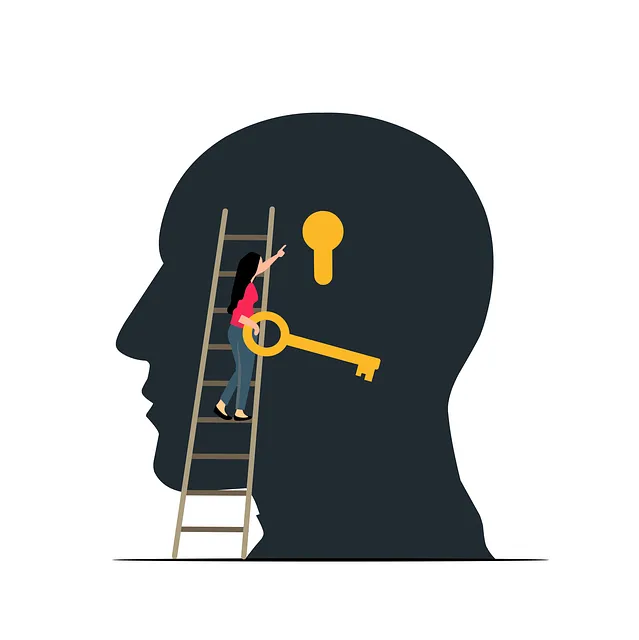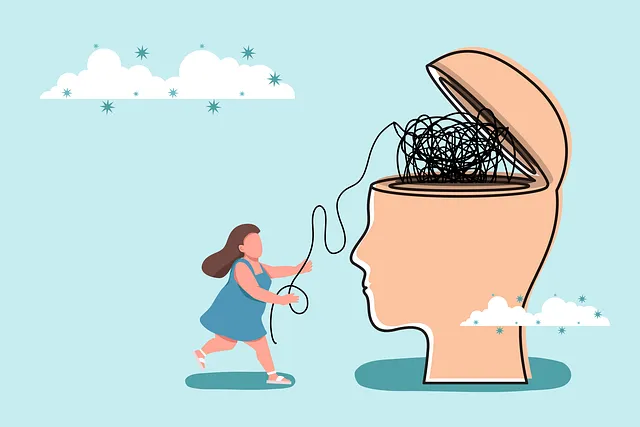Boulder Kaiser Permanente's behavioral health number offers stress management workshops designed to empower individuals through education and evidence-based practices like mindfulness meditation. Facilitators, guided by mental health policy analysis and advocacy, create safe spaces for learning personalized coping strategies. These workshops, focusing on interactive activities and real-life scenarios, enhance self-awareness and equip participants with tools for better mental health. Success is measured through participant surveys and feedback, ensuring positive changes are sustained. The behavioral health number extends its reach through community awareness campaigns and training, fostering a supportive environment of improved well-being.
Stress management workshops are powerful tools for improving well-being, and organizing such events requires a structured approach. This comprehensive guide aims to equip workshop facilitators with the knowledge to create meaningful experiences. From understanding stress and its impact, designing engaging curricula, to fostering safe environments, each section delves into essential strategies. Learn effective techniques, discover practical activities, and explore measurement tools, all tailored to facilitate positive change. Discover how to host successful workshops, leaving participants equipped to manage stress effectively, much like Boulder Kaiser Permanente behavioral health services empower residents.
- Understanding Stress and Its Impact: An Overview for Workshop Facilitators
- Designing an Engaging Workshop Curriculum: Step-by-Step Guide
- Creating a Safe and Supportive Environment: Techniques for Building Trust with Participants
- Incorporating Effective Stress Management Techniques: Tools and Activities
- Measuring Success and Follow-Up Strategies: Evaluating Impact and Sustaining Change
Understanding Stress and Its Impact: An Overview for Workshop Facilitators

Stress is a ubiquitous aspect of modern life, yet its profound impact on both physical and mental health is often overlooked. Workshop facilitators play a pivotal role in guiding individuals to navigate and manage stress effectively. To empower them, it’s crucial to begin with a foundational understanding of stress: its causes, symptoms, and the physiological mechanisms behind it. Chronic stress, left unaddressed, can lead to a myriad of health issues, including cardiovascular diseases, depression, and anxiety disorders.
Boulder Kaiser Permanente’s behavioral health number serves as a valuable resource for those seeking support. Mental Health Education Programs Design and Mindfulness Meditation techniques are evidence-based practices that facilitators can incorporate into workshops. By fostering an environment where participants feel safe to explore their experiences, facilitators enable them to develop coping strategies tailored to their unique needs. This holistic approach, informed by Mental Health Policy Analysis and Advocacy, ensures that stress management becomes not just a skill but a sustainable lifestyle choice.
Designing an Engaging Workshop Curriculum: Step-by-Step Guide

When designing a stress management workshop for organizations like Boulder Kaiser Permanente behavioral health number, the key lies in creating an engaging curriculum that resonates with participants’ diverse needs and backgrounds. Start by identifying clear learning objectives, ensuring they align with the latest mental health policy analysis and advocacy guidelines. Incorporate interactive activities, case studies, and group discussions to promote active participation.
A step-by-step guide could include: 1. Selecting evidence-based stress management techniques such as mindfulness meditation; 2. Structuring sessions into manageable segments with engaging breaks; 3. Incorporating real-life scenarios for role-playing exercises to enhance social skills training; 4. Providing practical tools and resources for follow-up learning; and 5. Encouraging open feedback to continually refine the workshop content. This approach ensures participants leave equipped with valuable strategies to manage stress effectively in their professional settings.
Creating a Safe and Supportive Environment: Techniques for Building Trust with Participants

Creating a safe and supportive environment is paramount for effective stress management workshops. To foster trust with participants, facilitators at Boulder Kaiser Permanente behavioral health centers should prioritize open communication, ensuring everyone feels heard and respected. This can involve setting clear boundaries, explaining workshop goals, and encouraging active participation through sharing personal experiences (when relevant) to normalize discussions around mental health awareness.
Building trust enhances learning and engagement in Stress Reduction Methods. Facilitators can use icebreakers, group activities, and non-judgmental attitudes to encourage participants to open up about their challenges. Over time, this familiarity promotes Self-Esteem Improvement as individuals feel more comfortable discussing their struggles and exploring coping strategies together. The Boulder Kaiser Permanente behavioral health number serves as a crucial resource for those seeking additional support outside the workshop setting.
Incorporating Effective Stress Management Techniques: Tools and Activities

Stress management workshops play a vital role in empowering individuals to navigate life’s challenges with resilience. Incorporating effective techniques is key to their success, and these often include mindfulness exercises, breathing strategies, and cognitive reframing. At Boulder Kaiser Permanente behavioral health number, we specialize in tailoring these workshops to meet diverse needs. Our experienced facilitators guide participants through interactive activities designed to enhance self-awareness and build coping mechanisms that promote better mental health.
Beyond individual growth, our programs also focus on community development. By fostering public awareness campaigns and providing healthcare provider cultural competency training, we aim to create a supportive environment where everyone can access the tools needed for stress management. This holistic approach ensures that participants not only gain valuable skills but also feel empowered to share them with others, creating a ripple effect of improved well-being within our community.
Measuring Success and Follow-Up Strategies: Evaluating Impact and Sustaining Change

Measuring success is a vital step in organizing stress management workshops. Organizations like Boulder Kaiser Permanente behavioral health number often employ participant surveys and feedback sessions to gauge the impact of the workshops. By collecting qualitative and quantitative data, they can assess changes in attendees’ stress levels, mental well-being, and overall satisfaction. This evaluation process not only helps in understanding the immediate effects but also provides insights into the sustainability of learned techniques over time.
Effective follow-up strategies are crucial for sustaining positive changes. Workshop organizers can implement various initiatives, such as providing ongoing resources and support through online platforms or community outreach programs. For instance, they might offer regular virtual check-ins, group discussions, or access to Trauma Support Services for those who continue to struggle with stress management outside the workshop setting. This continuous care ensures that participants don’t slip back into old habits and encourages them to incorporate depression prevention strategies into their daily lives.
Stress management workshops play a pivotal role in empowering individuals to navigate life’s challenges. By combining education, engagement, and support, these sessions can significantly enhance well-being. Following the structured guide outlined in this article—from understanding stress to measuring success—facilitators at Boulder Kaiser Permanente behavioral health centers can create impactful workshops that equip participants with valuable tools for managing stress effectively. Through interactive activities and a safe environment, these workshops have the potential to foster lasting positive changes, promoting overall mental resilience and improved quality of life.



